Dec 01, 2025
5 min read
Music scale finder tools are essential for any musician aiming to enhance creativity. Using a scale finder simplifies the process of identifying the right scales for your music.
In this blog, we’ll explore the top 5 musical scale finder tools and share useful tips to help you discover and experiment with various scales. For an easy way to unlock new musical possibilities, this guide is the perfect starting point!
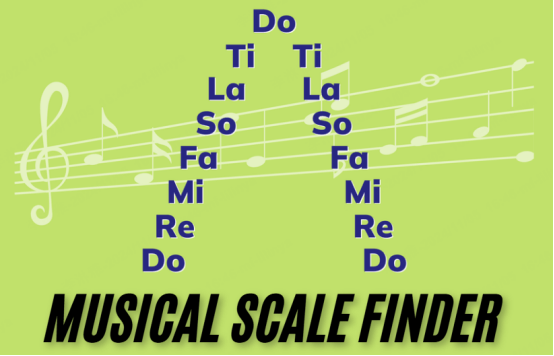
Part 1:Top 5 Best Musical Scale Finder Tools
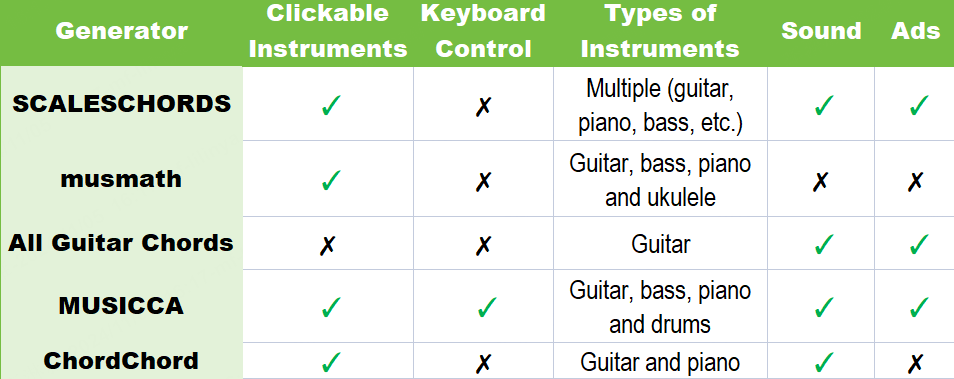
1. SCALESCHORDS
SCALESCHORDS is a flexible tool offering an extensive collection of scales, chords, and arpeggios. It caters to a variety of instruments.
Users can input notes or chords, and the tool will suggest compatible scales. Visual diagrams provide a clear view of scale patterns, and users can interact with the tool by clicking on the instrument to produce sound.
Works with - Guitar, piano, bass.
Site - https://www.scales-chords.com/scalefinder.php
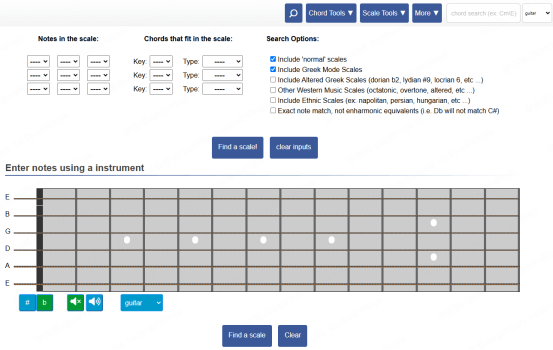
Pros
✅ Supports multiple instruments.
✅ Interactive sound features.
✅ Clear visual representations of scales.
Cons
❌ Interface can be overwhelming for beginners.
❌ Limited advanced theory resources.
2. musmath
musmath is designed for users interested in in-depth music theory. It offers a structured and simple interface. Users can search for scales by inputting specific notes or selecting predefined scale types.
Each result is displayed visually, aiding in understanding scale relationships. Although users can click on instruments to display chords, the tool lacks sound feedback.
Works with - Guitar, bass, piano, ukulele.
Site - https://www.musmath.com/tools/scale-lookup
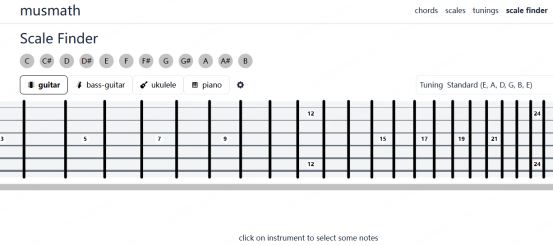
Pros
✅ Suitable for academic research and theory analysis.
✅ Clean and structured interface.
✅ Detailed visual representation of scales.
Cons
❌ No interactive sound features.
❌ Less intuitive for casual users.
3. All Guitar Chords
All Guitar Chords is a dedicated scale finder designed specifically for guitarists. It offers an array of fretboard charts and scale options, ranging from basic to exotic.
Users can view easy-to-play positions and select scales by root note and type. However, it lacks an interactive sound feature.
Works with - Guitar (all tunings).
Site - https://www.all-guitar-chords.com/scales
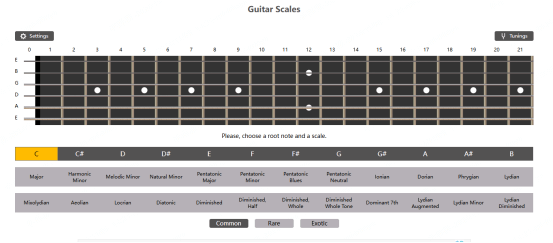
Pros
✅ Comprehensive fretboard charts.
✅ Suitable for all skill levels.
✅ Options for exploring different tunings.
Cons
❌ No interactive sound capabilities.
❌ Focused solely on guitar scales.
4. MUSICCA
MUSICCA is an intuitive tool designed for beginners learning instrument. The interface is simple and displays notes interactively, making it ideal for users without physical instruments.
Users can click on instruments to produce sounds or use the keyboard to simulate playing, helping them quickly visualise scale patterns.
Works with - Piano, guitar, bass, drums.
Site - https://www.musicca.com/scale-finder
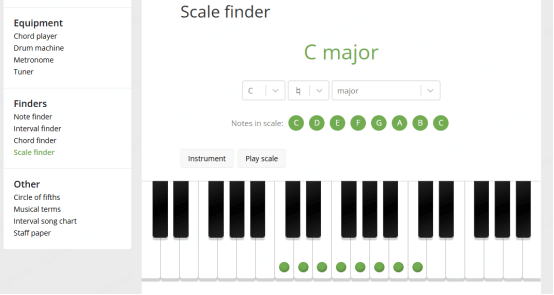
Pros
✅ Beginner-friendly interface.
✅ Interactive sound features.
✅ Supports multiple instruments.
Cons
❌ Limited advanced features for experienced musicians.
❌ Basic visual layout may not suit advanced learning.
5. ChordChord
ChordChord is a unique online scale finder that combines scale identification with chord progression suggestions.It's ideal for piano and guitar players.
Users can select three notes by clicking directly on the instrument, and the tool will suggest possible scales. Although the instrument does not produce individual note sounds, it does play the full chord sound for added context.
Works with - Guitar, bass, piano.
Site - https://chordchord.com/guitar-scales
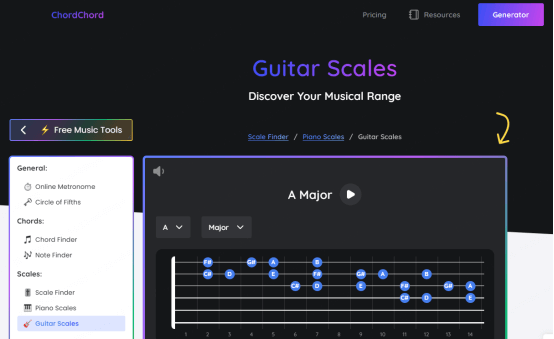
Pros
✅ Combines scale finding with chord progression suggestions.
✅ Ideal for songwriters and composers.
✅ User-friendly layout for quick inspiration.
Cons
❌ No interactive note sound when clicking on instruments.
❌ Limited to piano and guitar.
Top AI BPM Finder Tools: Accurate Beat Detection
Music Note Generator: Spark Creativity with Notes
Best Online Song Key Detectors to Identify Your Music's Key and BPM
Part 2. Do You Really Need a Scale to Write a Song?
Let’s cut through the myth: songs aren’t prison cells built from scales. Think of scales as suggestions, not rules.
-
Songs borrow notes freely. A track “in F major” mostly uses F major notes, but surprises like C# or Eb often slip in for flavour.
-
Scales = tools, not rulebooks. Ever heard blues artists bend notes? Or pop songs use “wrong” notes for emotional punches? That’s creativity trumping theory.
-
Improvisation laughs at scales. Jazz musicians hop between scales mid-solo. Guitarists add chromatic passing tones. Nobody’s checking a scale chart.
My experience: I wrote a folk tune using D Major but threw in a rogue G# to mimic a birdcall. It worked because feel mattered more than theory.
Part 3. Bonus – AI Music Generator for Beginners
Stuck on melodies? Hate lyrics? Musicful – an AI music generator that turns text into tracks. It is an advanced online platform that simplifies the music creation process. It can generate music in multiple genres, including RAP and R&B, making it a versatile tool for any music creator.
Get Music Now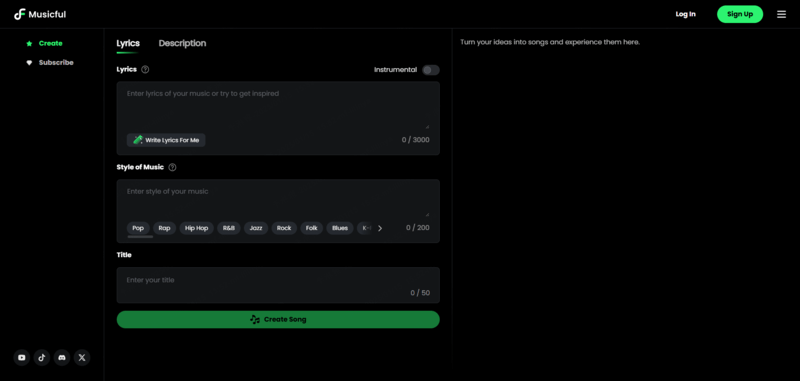
Key features
● Free to try - Download WAV, MP3, or MIDI files without paying a penny.
● Edit like a pro - Extend tracks, split stems.
● Zero skills needed - Use the “Write Lyrics FOR Me” button if words fail you. It even crafts lyrics in multiple languages.
● Type, click, done - Describe a mood (“dreamy techno with haunting vocals”) or paste lyrics.
Part 3:FAQs about Musical Scale Finder
1. Do I need music theory to use scale finders?
Nope. Tools like MUSICCA or SCALESCHORDS show patterns visually. Click notes, hear sounds, and experiment.
2. Can I use scale finders for genres like jazz or metal?
Absolutely. ALL GUITAR CHORDS includes exotic scales (e.g., Phrygian Dominant for metal, Altered Scale for jazz).
3. How do I identify a scale?
To identify a scale, start by analyzing a group of notes. Use a scale finder to input these notes. Alternatively, learn common scale patterns (such as major, minor, pentatonic, etc.) and match the pattern of whole and half steps in your group of notes to these templates.
Scale finder tools make this process even simpler by automatically generating possible scale options based on the notes you provide.
4. Do all scale finders offer sound features?
Not all. Some provide interactive sound feedback, while others focus on visual scale diagrams.
Conclusion
A music scale finder is more than a simple tool—it's your creative partner in mastering music composition. By exploring the best scale finder tools, you can spark new ideas and discover inspiring musical paths.
Plus, don't miss out on trying Musicful, the AI music maker that makes creating original tracks. Let these tools fuel your creativity and take your music journey to the next level!



